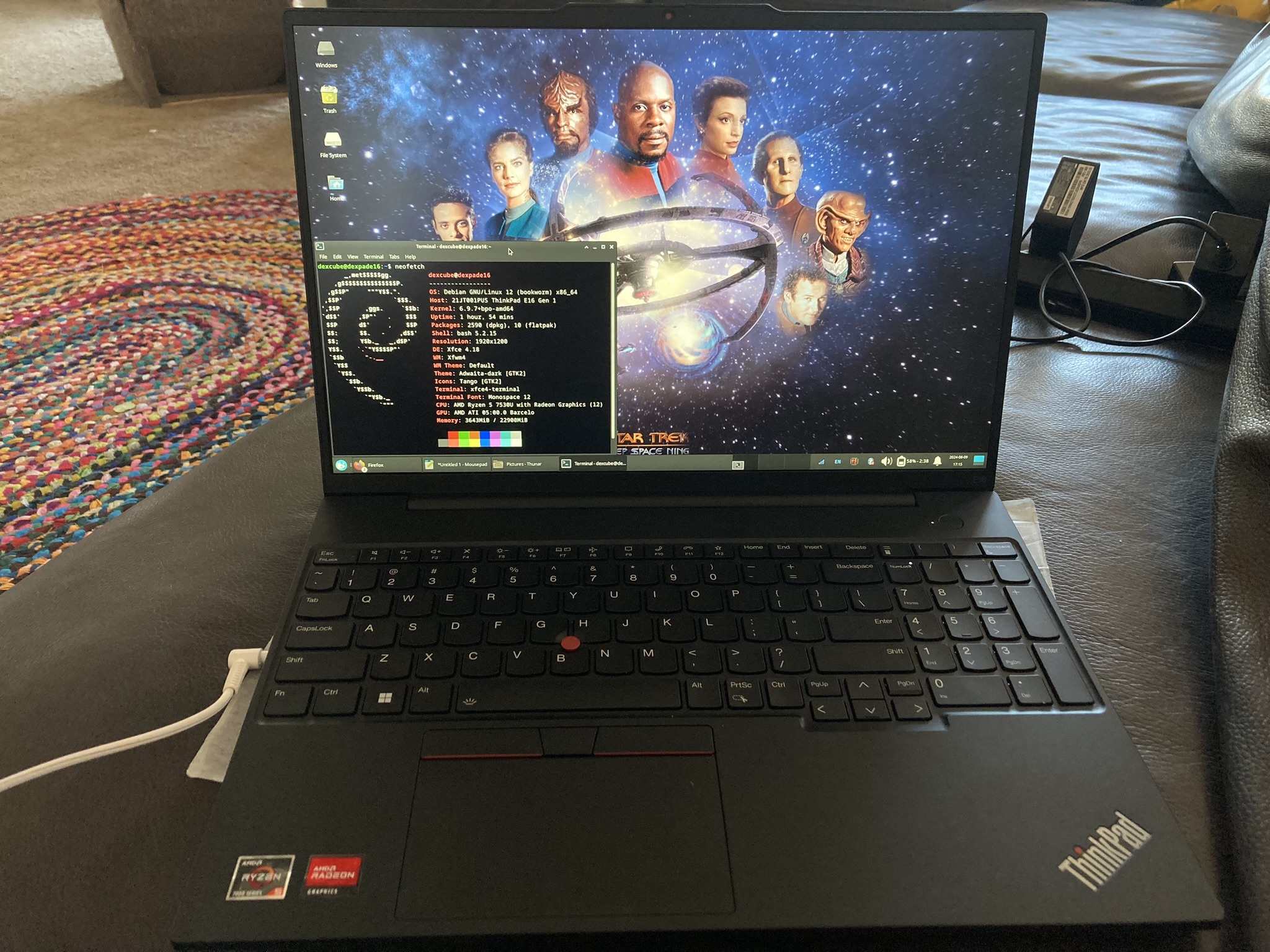Like, why the heck is Oracle still on this Earth? The only thing I can think of is MySQL, to which my response is, "Just use MariaDB."
data1701d
To be fair to Phoronix, I hardly think they're the worst offender in Linux space; I find their Linux coverage to be the least terrible online. They cover new kernel and software developments pretty well.
Other Linux-focused sites seem to mostly consist of clickbait "Ditch Windows 11 headlines", fleeting Linux apps, explaining something that there are already vast amounts of quality articles for, and/or thinly-veiled advertisements.
That is not to say Phoronix is perfect; I don't necessarily enjoy having to run my ad blocker there. However, it's not like it's different on other sites. Comparatively, I find Phoronix to be a decent quality Linux outlet.
To be fair, it would be weird for Google NOT to support Linux, as I believe they use Debian Testing internally.
Personally, I find Debian pretty good these days. I used to default to Testing, but I've gravitated towards stable.
Honestly, in the age of Flatpak and Steam, almost any distro works.
That first part sounds like software/firmware stuff like mine, but the second part almost sounds like an antenna design issue.
Used to use Red Hat. This theme is for people who have nostalgia for back when Red Hat wasn’t a puppet of the blue monster - not the one that likes cookies.
Thunderbird’s not bad, but I usually use web stuff.
I have an existing iCloud e-mail that I haven’t had the time to switch off of. I then use G-Mail for school stuff - since I’ve signed away my soul to Google anyway, might as well use what they have to offer.
Maybe one day, I’ll start my own personal e-mail utopia, nut that day is not today.
Maybe Fedora?
Personally, though, I’m a Debian guy - Testing on my desktop and stable with Flatpaks and a few backports on my laptop.
Who would have thought? I’ve hardly touched Windows in over 2 years (mostly other people’s computers and the occasional app in my GPU-accelerated VM) so I haven’t kept up much.
According to the repair manual, my Wi-Fi card is actually replaceable, at least physically. I don’t know if Lenovo still does BIOS whitelists of cards like they used to (I think they did remove it a few years back.), but their OEM parts website has a diverse selection if this fix were ever to break.
I’d say other than the bottom being a bother to remove (and the keyboard not being designed to be replaced, though after some research, it seems possible), this is a surprisingly repairable laptop for how recent it it.
I totally agree with you on the Linux side. However, I first got into Linux by using it in Virtualbox on Windows. In the Windows world, as far as I know, it’s the easiest-to-use free-as-in-beer^1^ hypervisor, so long as UEFI support has improved since I last used it.
1: I say this because of the non-libre extension pack.

In addition to the good suggestions for others in this thread (like setting it up as a portable gaming device or a server of sorts), it could also be set up as a low-distraction productivity machine. I don't know how well something like LibreOffice would run on it, but I imagine you could probably use a simpler word processor or even a plain text editor.
Worst comes to worst, I wonder what hardware support for this thing is in something like ReactOS or FreeDOS.